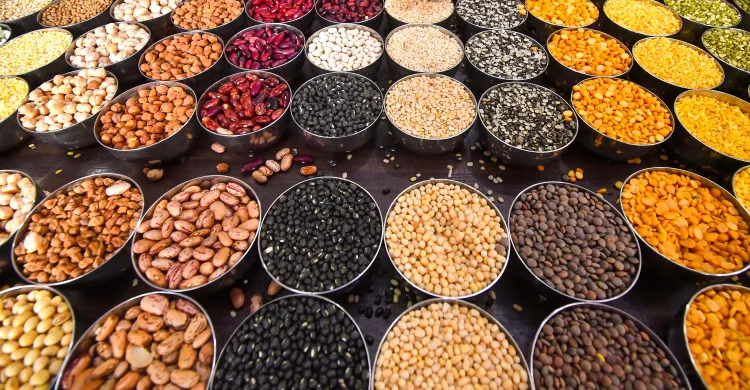Can Fermenting Legumes and Pulses Enhance Their Antioxidant and Antidiabetic Benefits?

Synopsis
Key Takeaways
- Fermenting pulses can significantly increase their antioxidant properties.
- This process also enhances the ability to manage Type 2 diabetes markers.
- Red lentils and green split peas showed the highest improvements.
- Fermentation with Lp299v provides additional health benefits, including gut health support.
- Exploring plant-based diets is crucial for sustainability.
New Delhi, June 6 (NationPress) Are you a fan of legumes and pulses? Fermenting these foods could significantly enhance their antioxidant levels and their capacity to combat diabetes, as revealed by a recent study.
Researchers from the University of Illinois Urbana-Champaign, USA, discovered the ideal fermentation conditions for pulses—dried edible seeds of legumes—that increased their antioxidant and antidiabetic properties, as well as boosting their soluble protein content.
The study involved fermenting various pulses, including black beans, black-eyed peas, green split peas, red lentils, and pinto bean flour, using the bacteria Lactiplantibacillus plantarum 299v as the key microorganism.
Findings indicated that antioxidant activity surged by as much as 83 percent, and the ability to regulate markers for Type 2 diabetes rose by 70 percent. Additionally, fermentation resulted in an increase in soluble protein content in these pulses.
Both red lentils and green split peas exhibited the most significant enhancements in antioxidant scavenging activity and protein solubility, alongside notable improvements in two enzymes that facilitate insulin metabolism.
The probiotic strain Lp299v contains microorganisms that are beneficial for gut health, as explained by Andrea Jimena Valdés-Alvarado, the study's first author and a graduate student at the university.
"After fermentation, it remains active during digestion. It not only preserves the fermented product consumed but also generates peptides or amino acids that are more readily absorbed than the intact proteins found in pulses," Valdés-Alvarado stated.
Moreover, Lp299v is recognized for its ability to lessen inflammation, bolster immunity, and improve iron absorption, as noted by the research team in their publication in the journal Antioxidants.
Elvira Gonzalez de Mejia, a food science professor at the university, emphasized that these pulses contain between 18 percent and 25 percent of high-quality proteins, suitable for standalone consumption or as ingredients in various food products. "We must explore optimal processing conditions and encourage the food industry to incorporate them into dairy beverages or meat substitutes," she said.
The researchers highlighted the importance of investigating the sustainability of plant-based diets in light of global food insecurity, dwindling natural resources, and climate change.









